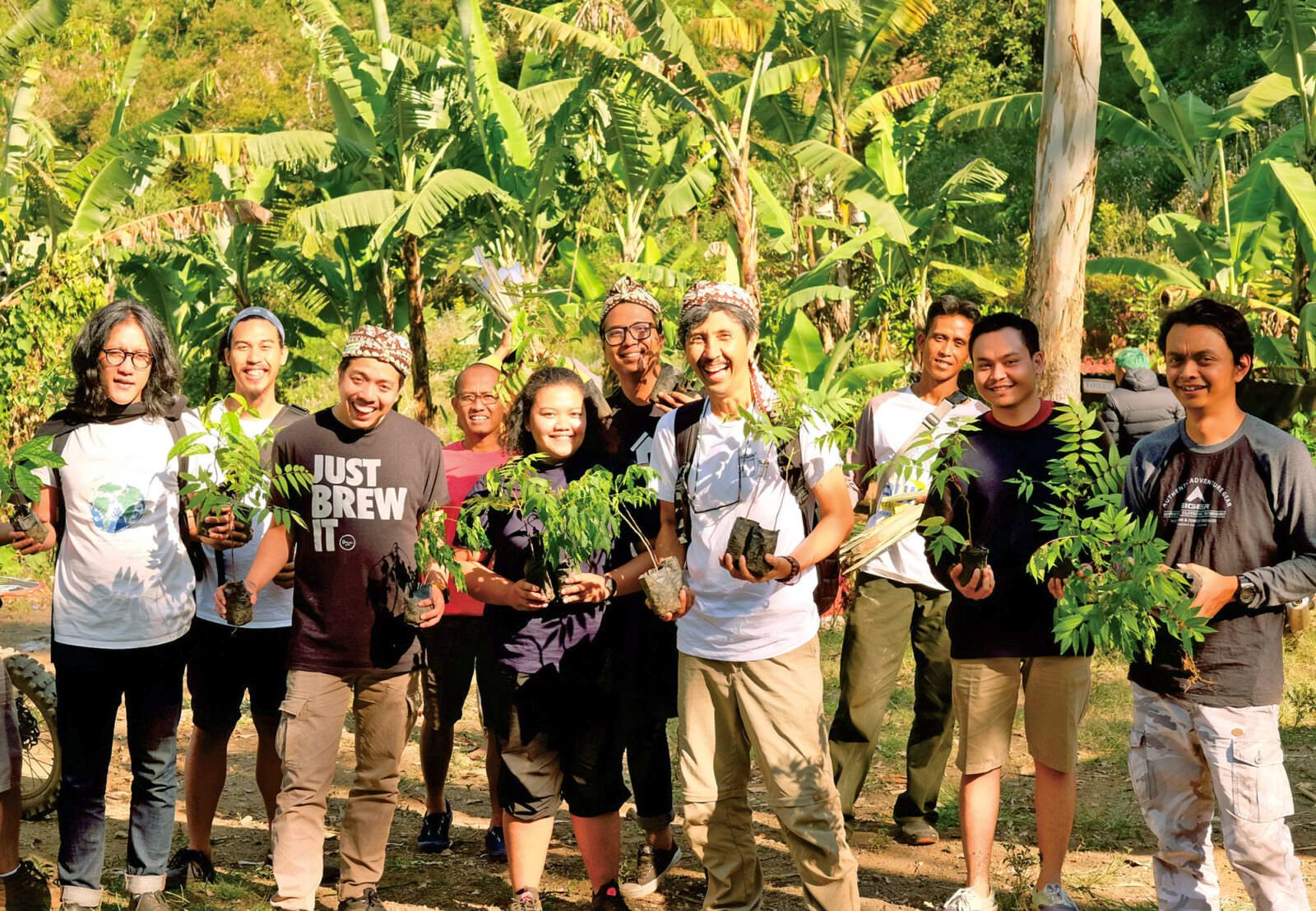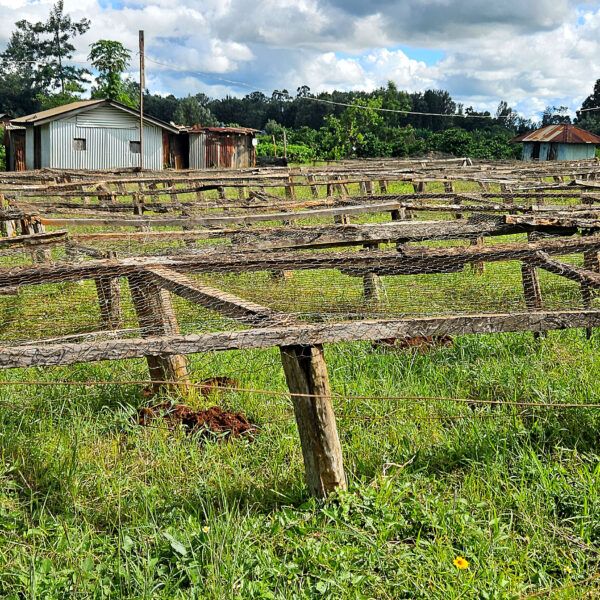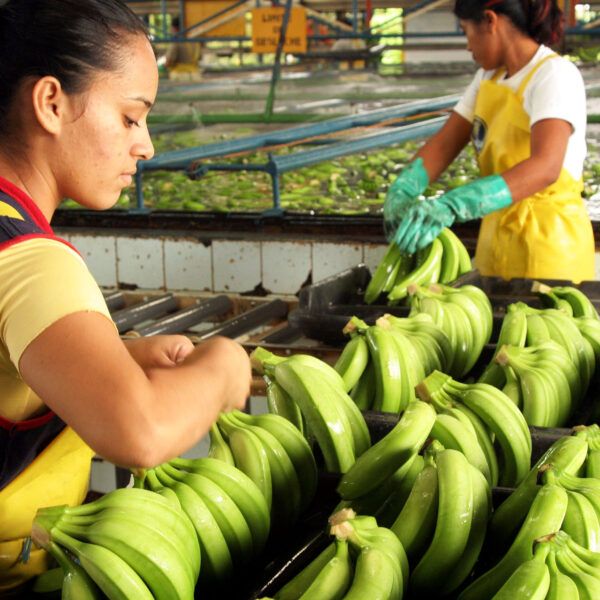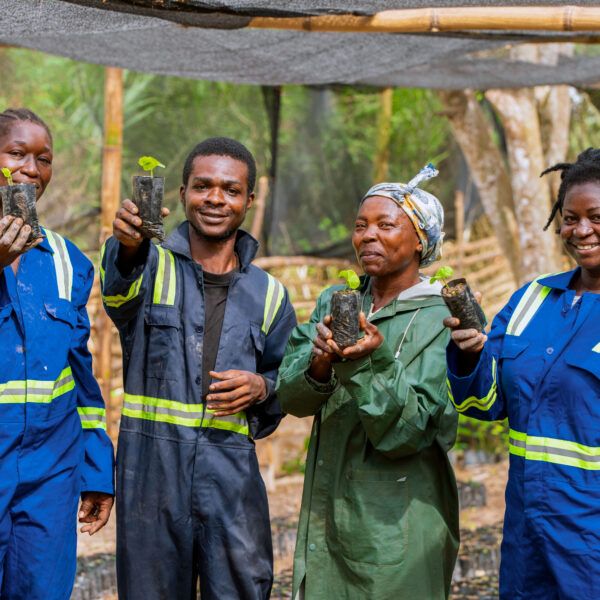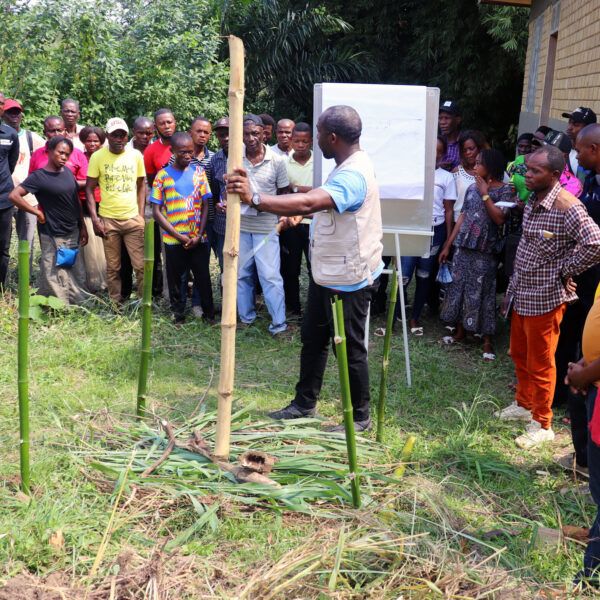Since March, when countries around the world began to institute lockdown measures to slow the spread of coronavirus, many our longtime, trusted partner communities have suffered an unintended result. As necessary as they were—and are—travel and shipping restrictions broke supply chains seemingly overnight. Farmers couldn’t cross borders to go to market and cooperatives could not export goods. These restrictions caused acute economic distress. In Peru, for example, coffee farmers who couldn’t sell their crops resorted to bartering coffee for food.
The farmers and foresters we work with also carry an elevated risk of infectious diseases, given the biodiversity of their regions (deforestation puts humans in close contact with wildlife and the pathogens they carry) and a lack of access to adequate healthcare. For many rural and Indigenous forest communities in remote areas, hospitals are vast distances away.
The Rainforest Alliance launched an emergency fundraising campaign in April so that we could provide longtime, trusted partners with logistical support and emergency relief grants. We called on the members of our alliance, and they gave generously despite widespread financial hardship. We raised $36,000 from our supporters and we then contributed another $144,000 to be able to distribute a total of $180,000 in grants.
Below are some of the groups we’ve supported through emergency grants.
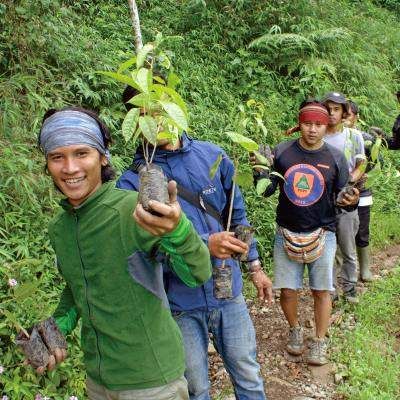
Indonesia
- Kerta Semaya Samaniya Cooperative in Jembrana, Bali
- KSU Karya Bersama Cooperative in South Pamona, Sulawesi
- Klasik Beans Cooperative in Puntang, West Java
The Rainforest Alliance has worked with these three coffee certified cooperatives for more than five years. All three have not only implemented sustainability practices on their own farms but have worked to educate neighbors and advocate for sustainability with local governments. The grant will help alleviate food scarcity brought on by the precipitous drop in coffee and cocoa prices created by the COVID-19 crisis.
Peru
Oro Verde, one of the largest coffee and cocoa producer groups in the San Martín region bordering the Amazon, drives the local economy with its sustainably produced coffee and cocoa. Oro Verde needed support to implement government protocols in order to continue the basic activities of the cooperative and to restart the harvest while minimizing the risk of contagion.
Ethiopia
Bebeka Coffee Estate, one of the largest Rainforest Alliance certificate holders in Ethiopia, employs a large number workers on its 10,000 hectares. Bebeka needed help acquiring personal protective equipment for the workers it houses on the estate to keep them and their families safe.
Ghana
In addition to the challenges COVID-19 posed to the people of Juaboso-Bia, a devastating rainstorm destroyed extensive property and rendered many homeless in early April. The grant will help displaced cocoa farming families with food and repairs to their homes; additionally, it will provide personal protective equipment (PPE). It will also help continue trainings—via radio broadcast—so that these communities can maintain certification.
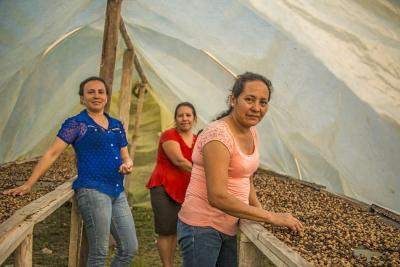
Guatemala
The Ramón Nut Committee, a cooperative made up of 20 women in Petén, Guatemala, harvests tree nuts from the forest floor and processes them. The grant will help cover income lost due to export restrictions and give the women seed capital to reactivate harvests.
Uganda
A grant will allow the Mountain Elgon Agro-Forestry Community Cooperatives Enterprises (MEACCE) to train farmers on COVID-19 safety measures and provide protective gear, hand-washing facilities at the household level, thermometers for temperature measuring at the bulking centers, and trainings via mobile messaging and radio broadcasts.
India
A grant will allow the purchase of 600 PPE kits for health workers on a tea estate in Assam, India.
Honduras
A grant will provide emergency relief to smallholder farmers in Honduras whose incomes have dropped due to COVID-19.
